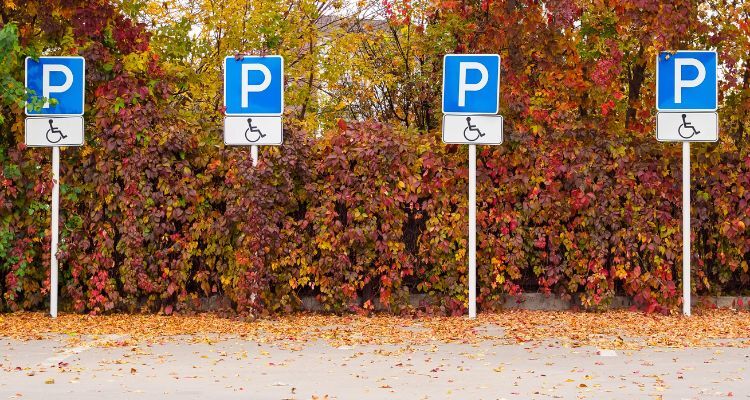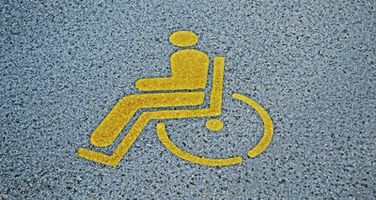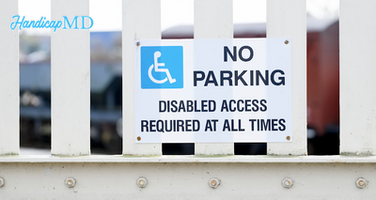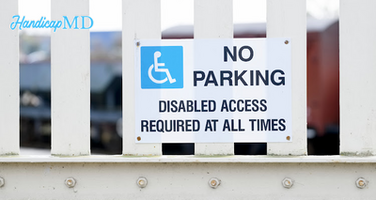
The Impact of Disability Tag Abuse and How to Report It in New Jersey
Disability tags, also known as handicapped parking permits, provide crucial accessibility benefits for individuals with disabilities. These tags allow people with mobility challenges to park in designated spaces close to entrances, making their everyday lives more manageable. However, the misuse of these tags has become an increasingly prevalent issue, particularly in states like New Jersey. Disability tag abuse not only takes away from those who genuinely need accessible parking but also undermines the broader social effort to ensure equal access for all.
In this article, we will dive deep into the various forms of handicap placard abuse, its impact on individuals with disabilities, and the steps the state of New Jersey is taking to prevent and penalize misuse. We’ll also explain how you can report instances of disability tag abuse if you witness them. Finally, we will address frequently asked questions on this topic to ensure that the public is well-informed about their responsibilities in maintaining fairness and accessibility.
Understanding Handicap Placards
Definition and Purpose
Disability tags are specialized permits issued to individuals with physical disabilities, providing them access to designated parking spaces that are closer to building entrances and other accessible areas. These tags are intended to make life more manageable for individuals with disabilities by reducing the distance they need to walk and offering spaces that are designed to accommodate wheelchairs or other mobility aids.
Eligibility Criteria for Disability Tags in New Jersey
In NJ, disability tags are issued to individuals who meet specific medical criteria. The New Jersey Motor Vehicle Commission (MVC) is responsible for the issuance and regulation of these special passes. To qualify, an applicant must provide certification from a licensed physician stating that they have a condition that severely limits their ability to walk or necessitates the use of mobility aids.
Types of Disabled Permits in New Jersey
Permanent Disability Tags
Permanent tags are issued to individuals whose disabilities are chronic or lifelong. These tags need to be renewed every few years but require no re-certification of the disability. The tag is typically hung from the rear-view mirror or placed visibly on the dashboard when the vehicle is parked.
Temporary Disability Tags
Temporary tags are provided to those with short-term mobility impairments, such as recovery from surgery or injury. These tags are valid for up to six months and must be renewed or surrendered once the individual recovers.
What Is Handicap Placard Abuse?
Disability tag abuse refers to the illegal use of handicapped parking permits or passes by individuals who do not have the right to use them. In NJ, like many other states, this abuse can take several forms, including:
Using a deceased person's pass: One of the most egregious forms of abuse is when a person continues to use a disability tag issued to a deceased family member. In such cases, the tag should be immediately returned to the MVC.
Lending tags to non-disabled individuals: Many people lend their disability tags to friends or family members who are not disabled but want the convenience of closer parking. This type of misuse is not only unethical but also illegal.
Using expired or forged tags: Expired passes are often left hanging on rearview mirrors long after their valid date has passed. Others may forge passes to secure prime parking spots unlawfully. NJ authorities are cracking down on such offenders through enhanced verification techniques.
Using a tag when the rightful holder is not present: Some people will use the tag of a person with a disability even if that person is not in the vehicle. For instance, family members may use the tag to park conveniently while running errands without the person for whom the tag was issued.
Falsifying medical conditions: There are cases where people falsify their medical conditions to obtain a disability tag. This is typically done by providing false information or seeking fraudulent certifications from healthcare providers.
The Impact of Disability Tag Abuse on Disabled Individuals
Handicap permit abuse creates significant hardships for people with legitimate needs. The effects of this abuse are far-reaching and affect not only individuals but also the community at large. Here are some of the key impacts:
1. Reduced Accessibility for Disabled Individuals
When people abuse disability tags, they occupy spaces that are legally reserved for those with disabilities. This means that individuals with disabilities may have to park further away, often in unsafe or difficult-to-reach areas. For those who have limited mobility, this can be more than just an inconvenience—it can be dangerous.
2. Increased Stress and Anxiety
Individuals with disabilities already face many daily challenges. The frustration of finding their designated parking spaces taken up by abusers can lead to increased stress and anxiety. This is particularly true in busy areas, such as shopping centers or medical facilities, where parking spots are limited.
3. Undermining Social Trust
When disability tags are abused, it undermines the trust and goodwill that society has established to help individuals with disabilities. It erodes the integrity of the system, making it harder for people to rely on its effectiveness. When the rules are disregarded, and no accountability is held, people begin to question whether the system is fair.
4. Legal and Financial Consequences for Abusers
In NJ, the misuse of disability tags is a criminal offense. Fines can range from $250 to $1,000, and repeat offenders may face suspension of their driving privileges. In some cases, individuals may even face criminal charges if they engage in forgery or fraud to obtain a tag.
Laws Governing Handicap Placards in New Jersey
NJ has strict laws regulating the issuance and use of disability parking passes. The New Jersey Motor Vehicle Commission (MVC) is responsible for issuing disability tags to individuals who qualify. A valid tag is only given to those who meet specific medical criteria, as certified by a licensed healthcare provider.
Some important regulations include:
Eligibility Criteria: To qualify for a New Jersey disabled permit, an individual must have a permanent disability that significantly impairs their mobility. This includes individuals who cannot walk without the use of an assistive device or have a cardiac condition classified as Class III or IV by the American Heart Association.
Temporary Tags: Individuals with temporary disabilities (e.g., recovering from surgery) can apply for temporary tags. These special passes are valid for six months but can be renewed if necessary.
Renewal Process: Permanent passes must be renewed every three years. Holders are required to update their information with the MVC to ensure that they still meet the eligibility requirements.
Penalties for Abuse: As mentioned earlier, fines for disability tag abuse can be steep. A first-time offense can result in a fine of up to $500, while repeat offenses carry fines of up to $1,000 and the potential for license suspension.
Legal Consequences of Disabled Permit Abuse in New Jersey
NJ has strict laws against disability tag abuse, with violators facing significant penalties:
Fines and Penalties
The fines for disability tag abuse can range from $100 to $500, depending on the severity of the offense. Repeat offenders may face higher fines and additional penalties.
Legal Prosecution and License Suspension
In severe cases, offenders may face legal prosecution, leading to possible jail time or suspension of their driver’s license.
How to Report Handicap Placard Abuse in New Jersey
If you witness someone abusing a disability tag, you can report the incident to the appropriate authorities in NJ. It is important to take action because reporting abuse helps preserve accessibility for those who need it.
If you witness disability tag abuse:
1. Note the License Plate Number: Record the vehicle’s license plate number and the disability tag number, if visible.
2. Gather Evidence: If possible, take photos of the vehicle and tag. However, be mindful not to confront the individual.
3. Contact: In NJ, reports can be made to the New Jersey Motor Vehicle Commission or local police. Many municipalities have dedicated hotlines or online reporting systems.
Here’s how you can report an incident:
1. Contact Local Law Enforcement
In most cases, the best course of action is to report the abuse to your local police department. If you notice someone using a disabled parking spot without a valid tag, or if you suspect that a parking tag is being used fraudulently, you can call your local non-emergency police number. Provide as much detail as possible, including the location, vehicle description, and the nature of the abuse.
2. Report to the NJ Motor Vehicle Commission (MVC)
You can also report disability tag abuse directly to the MVC. The MVC takes reports of fraud and abuse seriously and will investigate any legitimate claims. To report abuse, you can visit the MVC’s website or contact them by phone to submit your complaint.
3. Submit an Online Report
Several municipalities in NJ have online forms that allow residents to report disability tag abuse. For example, the City of Newark and other large towns may offer a way to submit complaints directly to the city government. Check your local municipality’s website for reporting options.
4. Provide Evidence
Whenever possible, gather evidence to support your claim. This could include taking a photo of the vehicle in the accessible parking spot without the proper tag displayed or noting the license plate number of the vehicle. However, be careful not to confront the individual, as this can lead to dangerous situations.
5. Follow Up
After submitting your report, be sure to follow up with the appropriate authorities. You may not always receive immediate feedback, but persistence can help ensure that the case is investigated thoroughly.
The Role of Technology in Preventing Disabled Permit Abuse
In recent years, technology has played an increasing role in curbing disability tag abuse. Several tools and systems have been developed to ensure that accessible parking spots are used correctly. These include:
1. License Plate Recognition Systems (LPR)
Some cities have begun using LPR technology to scan vehicles in accessible parking spots. This technology automatically checks whether the vehicle’s registered owner has a valid disability tag. If the vehicle is not authorized to park there, a citation is issued automatically.
2. Mobile Apps for Reporting
Several mobile apps now allow users to report parking violations directly from their smartphones. These apps are connected to local law enforcement and streamline the reporting process for individuals who witness disability tag abuse.
3. Electronic Placards
NJ is also exploring the use of electronic tags that are harder to forge or duplicate. These special tags would be linked to a specific individual’s vehicle registration, making it easier for authorities to identify instances of misuse.
Causes Behind Disabled Permit Abuse
Lack of Awareness and Education
Many offenders are simply unaware of the impact their actions have on the disabled community. They may view the use of disability tags as a minor infraction rather than a serious offense.
Insufficient Penalties for Offenders
In some cases, penalties for disability tag abuse may not be stringent enough to deter offenders. Increasing fines and more rigorous enforcement can help curb this problem.
Misuse Due to Perceived Convenience
Many people misuse disability tags for the perceived convenience of closer parking, especially in crowded areas. They may rationalize their actions by believing that one instance of abuse won’t cause harm.
The Importance of Education and Awareness
In addition to legal enforcement, one of the most effective ways to combat disability tag abuse is through public education and awareness. Many individuals may not fully understand the consequences of abusing a disability tag or may believe that using a family member’s tag for “just a minute” is harmless.
Educational campaigns can help raise awareness about the impact of disability tag abuse and encourage people to think twice before misusing these permits. For example, community outreach programs can inform the public about the importance of accessible parking for individuals with disabilities and the legal penalties for abuse.
Frequently Asked Questions (FAQs)
1. What qualifies someone for a disability parking pass in NJ?
To qualify for a handicap placard in New Jersey, an individual must have a severe disability that limits their ability to walk or requires the use of assistive devices. The disability must be certified by a licensed medical professional.
2. Can I use a disability tag issued to my family member if they are not in the car?
No. It is illegal to use a disability tag if the person for whom it was issued is not present in the vehicle. Doing so constitutes disability tag abuse and can result in fines and penalties.
3. How can I report someone who is misusing a disability tag?
You can report disability tag abuse by contacting your local police department, submitting a complaint to the NJ Motor Vehicle Commission, or using an online reporting tool if available in your area.
4. What are the penalties for disability tag abuse in NJ?
Penalties for disability tag abuse in NJ range from fines of $250 to $1,000. Repeat offenders may also face suspension of their driving privileges or criminal charges for forgery or fraud.
5. Can I lose my disability tag if it’s misused by someone else?
Yes, if a disability tag issued to you is misused by others, you may face penalties, including the revocation of the tag. It is your responsibility to ensure that only authorized individuals use your tag.
6. Are temporary disability tags available in NJ?
Yes. Temporary disability tags are available for individuals with short-term disabilities, such as those recovering from surgery. These tags are valid for six months and can be renewed if necessary.
7. What should I do if I suspect disability tag abuse?
If you suspect disability tag abuse, gather as much information as possible and report it to the appropriate authorities, such as the local police or the NJ MVC.
8. What happens if I report disability tag abuse and nothing is done?
Persistence is key. Continue to report repeated offenses to authorities, and consider reaching out to local advocacy groups for support.
9. Are there any resources to help disabled individuals understand their rights?
Yes, organizations like Disability Rights New Jersey and the New Jersey Motor Vehicle Commission provide resources to help individuals understand their rights and responsibilities.
10. How can I report disability tag abuse anonymously?
Most reporting systems allow for anonymous submissions. However, providing your contact information can be helpful if authorities need more details.
Conclusion
Handicap placard abuse is a serious issue in New Jersey that directly impacts the quality of life for individuals with disabilities. By misusing these tags, abusers deny rightful access to those who truly need it, undermining the accessibility system and diminishing the respect for rules that are put in place to support those with mobility challenges.
Enforcing laws, promoting awareness, and making it easier for people to report abuse are key steps toward solving this problem. By working together, we can help ensure that accessible parking remains available to those who need it most and create a more just and equitable society for all.
.png)






